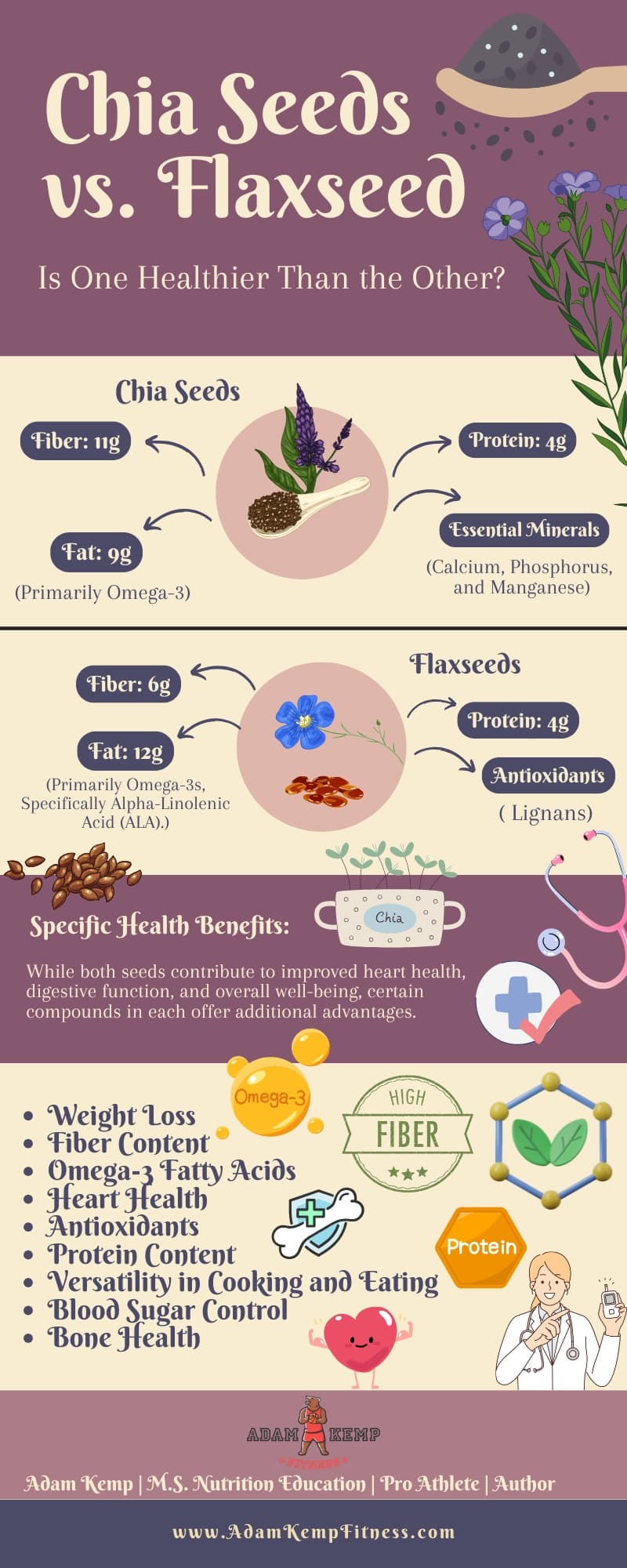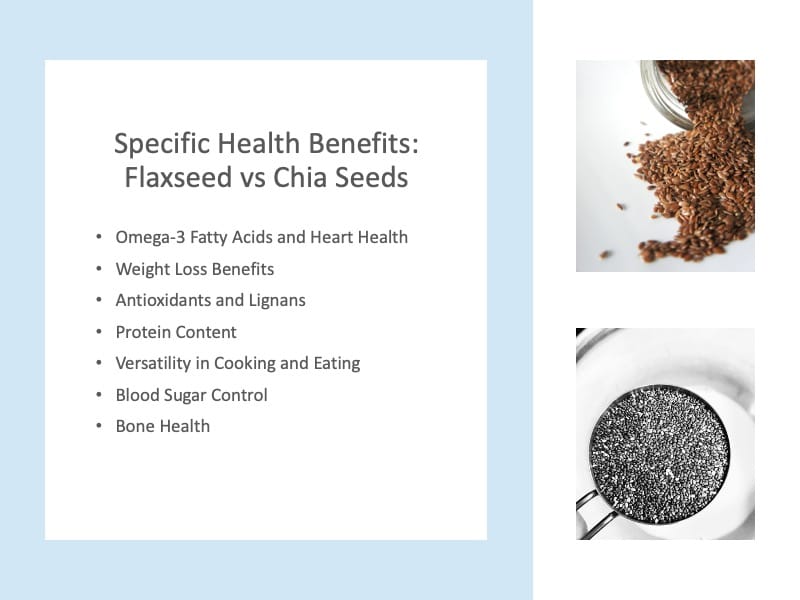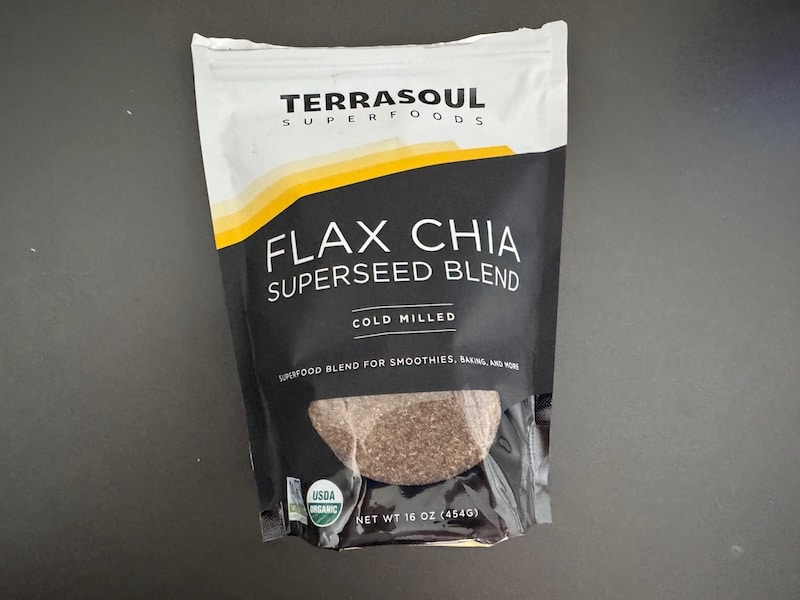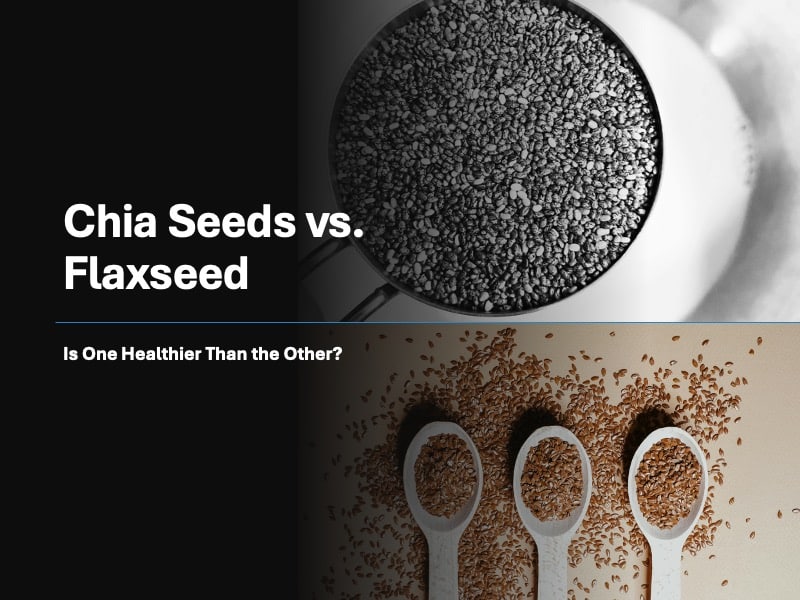Chia Seeds vs Flaxseed: Is Flaxseed or Chia Seeds Healthier?
Chia seeds and flaxseeds are two of the most nutrient-dense plant foods in the world—frequently spotlighted in wellness circles, plant-based diets, and even professional sports nutrition.
Both are loaded with fiber, healthy fats, protein, and essential minerals that support heart health, digestion, weight management, and more.
But when comparing Chia Seeds vs Flaxseed, many people want to know—does one offer more health benefits than the other?
From smoothies and oatmeal to energy bars and baking recipes, both seeds are incredibly versatile and easy to incorporate into your daily routine.
Still, there are subtle but important differences that can make one better suited for your personal health goals.
Whether you’re aiming to boost your omega-3 intake, improve gut health, or balance hormones naturally, understanding the flaxseed vs chia seeds debate can help you make more informed nutrition choices.
After over a decade playing professional basketball across Europe, I’ve used both of these seeds regularly to optimize performance, recovery, and overall health.
Each offers unique advantages, and depending on what your body needs, one might come out on top.
Here’s a clear, evidence-based comparison to help you decide which seed deserves more space in your pantry—and how you can use both to build a more resilient, nutrient-rich diet.
Last update on 2025-04-16 / This article includes affiliate links/Images via Amazon Product Advertising API. I may earn commissions on purchases made through these links.
Nutrient Comparison

When comparing chia seeds and flaxseeds, the nutritional profiles of these superfoods reveal some similarities, but each seed also offers unique health benefits.
Both are rich in essential nutrients like fiber, protein, and healthy fats, but their specific nutrient breakdowns can help you determine which is more aligned with your dietary needs.
Understanding the differences in their macronutrients, vitamins, and minerals can guide you in choosing the right seed for your health goals.
Chia Seeds
Chia seeds are tiny, black or white seeds that pack an impressive nutritional punch.
Just two tablespoons (28 grams) of chia seeds contain approximately 11 grams of fiber, 4 grams of protein, and 9 grams of fat, most of which are healthy omega-3 fatty acids.
They also provide essential minerals such as calcium, phosphorus, and manganese, making chia seeds an excellent choice for bone health.
Flaxseeds
Flaxseeds, also known as linseeds, are slightly larger and come in brown or golden varieties. In the same two-tablespoon serving, flaxseeds offer 6 grams of fiber, 4 grams of protein, and 12 grams of fat.
Like chia seeds, most of the fats in flaxseeds are heart-healthy omega-3s, specifically alpha-linolenic acid (ALA).
Additionally, flaxseeds are rich in lignans—plant compounds that may have antioxidant properties.
Specific Health Benefits: Flaxseed vs Chia Seeds

Chia seeds and flaxseeds are both packed with powerful nutrients, but their specific health benefits can vary based on their unique properties.
While both seeds contribute to improved heart health, digestive function, and overall well-being, certain compounds in each offer additional advantages.
By exploring the distinct health benefits of flaxseeds and chia seeds, you can better understand how each can support your individual health goals and which might be more beneficial for your specific needs.
Weight Loss Benefits
Both chia seeds and flaxseeds can support weight loss efforts due to their high fiber content, which promotes a feeling of fullness and helps regulate appetite.
The soluble fiber in chia seeds forms a gel in the stomach, slowing digestion and keeping you satisfied for longer.
Similarly, the fiber in flaxseeds helps control hunger, stabilize blood sugar levels, and reduce overeating.
Fiber Content
Fiber is another area where both seeds shine, though chia seeds come out on top in terms of fiber content. Chia seeds provide about 11 grams of fiber per two-tablespoon serving, compared to flaxseeds’ 6 grams.
Fiber plays a crucial role in digestive health by promoting regular bowel movements, preventing constipation, and supporting gut health.
If you’re looking to increase your fiber intake, chia seeds are the better option.
Omega-3 Fatty Acids and Heart Health
Both chia seeds and flaxseeds are excellent sources of omega-3 fatty acids, particularly ALA, which is essential for heart health. Omega-3s help reduce inflammation, lower cholesterol levels, and support overall cardiovascular function.
However, flaxseeds contain slightly more ALA per serving compared to chia seeds, giving them a slight edge for those specifically seeking omega-3 benefits.
Antioxidants and Lignans
Flaxseeds are rich in lignans, which are plant-based compounds with antioxidant and estrogen-like properties.
Lignans may help reduce the risk of certain cancers, particularly breast cancer, by blocking or suppressing hormone-related tumor growth.
While chia seeds do contain antioxidants, they don’t have lignans, making flaxseeds more effective in this particular area.
Protein Content
Both chia seeds and flaxseeds offer a modest amount of plant-based protein, making them great additions to vegetarian and vegan diets.
While the protein content is nearly identical, flaxseeds contain slightly more complete proteins, meaning they offer a broader range of essential amino acids. However, the difference is minimal, so both seeds can serve as a solid protein source.
Versatility in Cooking and Eating
Chia seeds and flaxseeds are both incredibly versatile, but their textures and uses in cooking differ slightly.
Chia seeds can absorb up to 12 times their weight in liquid, forming a gel-like consistency.
- This makes them ideal for adding to smoothies, making chia pudding, or using as an egg substitute in vegan baking.
- Additionally, they can be consumed whole without grinding, as their outer shell is easy to digest.
Flaxseeds, on the other hand, should be ground before consumption for optimal nutrient absorption.
- Whole flaxseeds tend to pass through the digestive system without being broken down, so grinding them allows your body to access the beneficial nutrients inside.
- Ground flaxseeds can be added to smoothies, oatmeal, yogurt, and baked goods for a nutritional boost.
Blood Sugar Control
For those concerned with blood sugar control, chia seeds may be a better option.
Studies suggest that chia seeds can help regulate blood sugar levels after meals, reducing spikes and promoting stable energy levels throughout the day. This is particularly beneficial for individuals with type 2 diabetes or those at risk of developing insulin resistance.
Bone Health
Chia seeds are especially high in calcium, providing nearly 18% of the daily recommended intake in just one serving.
This makes them an excellent choice for individuals who are dairy-free or looking to boost their calcium intake for bone health.
While flaxseeds are also nutrient-dense, they do not offer the same high levels of calcium as chia seeds.
Chia vs Flaxseed – Which One Is Healthier?
Chia seeds and flaxseeds both offer impressive health benefits and choosing between them largely depends on your personal health goals. Whether you’re focusing on heart health, digestive wellness, or increasing your omega-3 intake, both seeds are excellent choices.
By incorporating both into your diet, you can take advantage of their unique health properties and enjoy a more diverse range of nutrients.
However, the best choice depends on your specific health goals.
- If you’re looking for higher fiber content and better blood sugar control, chia seeds might be the superior option.
- For those focused on increasing their intake of omega-3s and antioxidants like lignans, flaxseeds are the better choice.
- When it comes to versatility in cooking, chia seeds offer an easier-to-use option as they don’t need to be ground for nutrient absorption.
Ultimately, incorporating both seeds into your diet can provide a well-rounded boost to your health.
How to Add Chia Seeds and Flaxseeds to Your Diet

To reap the full benefits of chia seeds and flaxseeds, consider incorporating them into smoothies, yogurt, oatmeal, and baked goods. You can also sprinkle them on salads or mix them into homemade energy bars.
Since chia seeds can absorb liquid, they’re great for making chia pudding or adding to your water bottle for an extra fiber boost.
For flaxseeds, make sure to grind them before use to maximize nutrient absorption.
A simple coffee grinder works well for this.
Once ground, flaxseeds can be added to many of the same foods as chia seeds for added nutritional value.
If you don’t have flaxseed and chia seed at home, this blend from Carrington Farms is an excellent option:
Last update on 2025-04-16 / This article includes affiliate links/Images via Amazon Product Advertising API. I may earn commissions on purchases made through these links.
Final Thoughts: Are Chia Seeds or Flaxseeds Healthier?
When it comes to the chia seeds vs flaxseed debate, there’s no clear winner across the board—only a better fit depending on your individual health goals.
Both seeds deliver exceptional nutritional value and are worth keeping in your kitchen, especially if you’re serious about optimizing wellness through whole, functional foods.
Chia seeds shine when it comes to fiber content, blood sugar regulation, and ease of use—especially since they don’t need to be ground for absorption.
They’re an excellent choice for anyone focused on digestive health, satiety, or plant-based calcium intake.
On the other hand, flaxseeds offer slightly more omega-3 fatty acids and a unique antioxidant punch through their lignan content, which may offer hormone-balancing and cancer-protective effects.
When ground properly, they’re an ideal addition for those looking to support heart health and hormonal wellness.
As someone who has relied on both seeds throughout a professional athletic career, I’ve found that rotating them—or even combining them—is often the most practical and effective solution.
You don’t have to choose one over the other. Instead, think of them as complementary tools in your nutrition toolkit, each with its own strengths.
So rather than picking a side in the flaxseed vs chia seeds matchup, aim to incorporate both regularly in ways that align with your lifestyle and health priorities. Your body will thank you for the variety, the balance, and the steady stream of nutrients.




